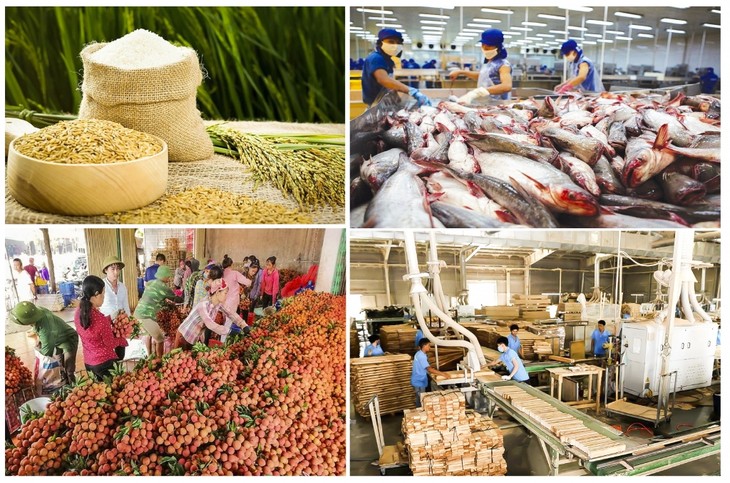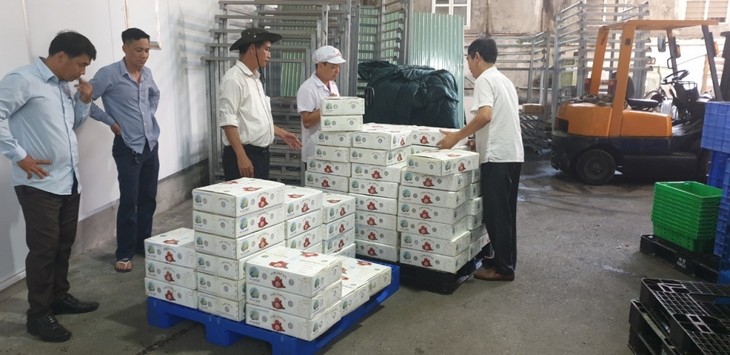Vietnam’s agriculture expects a bumper harvest in 2021
Minh Long -
(VOVWORLD) - Last year Vietnam's agricultural sector faced many challenges caused by the COVID-19 epidemic and climate change but still maintained a growth rate of 2.65%. Agriculture was an important factor in the national economy’s growth. Farmers expect 2021 to be a bumper season, partly because of the epidemic.
 (Photo: haiquanonline.com.vn) (Photo: haiquanonline.com.vn) |
Vietnam’s agro-forestry-fishery exports earned 41 billion USD last year. This year’s rice exports are estimated to earn 3 billion USD, with prices undergoing an historic rise. Fresh lychees are being exported to Japan for the first time. Vietnamese rambutan is being sold in China’s Taiwan and shrimp and tra fish are being exported to Brazil. The farm produce processing industry has attracted billions of US dollars in investment. Vietnam’s new-style rural development program is significantly improving people’s lives.
Restructuring crops, animals, and aquatic products to adapt to climate change and market demand and improving chain linkages to increase the added value of farm produce are two key solutions to meeting the challenges and threats brought by extreme climate change.
 The first batch of fresh lychees on the way to supermarkets in Japan. The first batch of fresh lychees on the way to supermarkets in Japan. (Photo: Plant Protection Department)
|
This year the agriculture sector targets an export turnover of 44 billion USD. The sector has proposed a dual solution to ensuring growth. First, continue to restructure the agricultural economy. And second, apply digital technology to create a modern agriculture conducted by more professional farmers.
The sector will offer incentives for businesses to invest in agriculture and more support for new-style agricultural cooperatives, creating a production axis connecting businesses and farmers.
Minister of Agriculture and Rural Development Nguyen Xuan Cuong said, “The direction matches Vietnam very well. Vietnam remains based on small fields and farmers, but it can still have a large, concentrated commodity production adapted to each region. The axis linking businesses, cooperatives, and farmers is the key to a modern agriculture.”
Minh Long